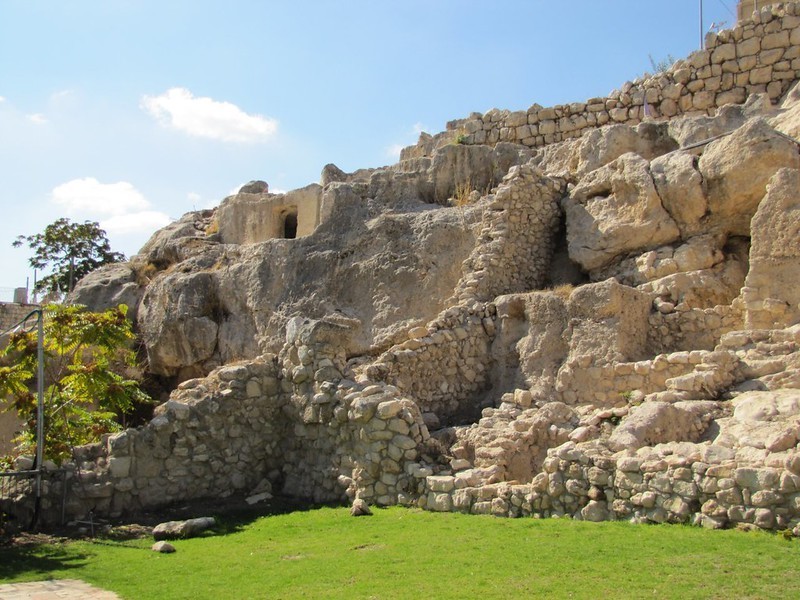
The Jewish religion is referred to as Judaism and is known to be one of the world’s oldest monotheistic religion. Monotheistic religions belief systems are based on the idea of a single God that is all-powerful and not in need of helpmates such as the Trinity of some Christian faiths, or polytheism, where multiple gods embody only aspects of human existence. Judaism has a millenary history with well-defined holy books it extracts its teachings from and observances that true believers adhere to for their faith foundation down to this day. A strong traditional base of law, culture, and religious-based observances are the cornerstones of this religion. Below you can find some important facts about the Jewish religion.
Origins of Judaism
The origins of the Jewish faith are clearly laid out from the ancient times of Abraham with whom God made a special covenant according to Judaism. Upon Abraham’s faith in God and almost sacrificing his son Isaac, a covenant was formed with God to bless his offspring for generations to come, solidifying them as God’s chosen people. Abraham’s grandson Jacob is central to the Jewish faith, as he took the name Israel causing his offspring to become known as Israelites.
[If you are interested in studying Biblical Hebrew and have a better insight into Judaism, you can read here my article on this topic.]
Thousands of years after Abraham, the story of the Israelites in Egypt captivity, and the march from that existence led by Moses up to Mt. Sinai, where he was given the obligations of God in the form of the ten commandments, play strongly into the Jewish faith down to this day. Due to this captive state part of their history as slaves in Egypt, Jewish people still practice a charity called Tzedakah or kindness to strangers as a proof of their faith.
Centuries later, after the killing of thousands of Jews during World War II, the land of Israel was established. This country is considered a mecca of the Jewish faith.
Today Jews turn toward Jerusalem literally when praying and find that the promises of God and their identity are fully realized through that nation.
Jewish Holy Writings

The Torah is represented by the first five books of the Old Testament in the Christian Bible and is by far the best known holy text of the Jewish faith. The Tanakh, otherwise referred to as the Hebrew Bible, contains within it the Torah and is considered the sacred text by those of the Jewish faith.
Added to this document of faith is the Mishnah that was the first written recording of centuries of important verbally transmitted faith tenets of the Jewish people. The Mishnah contains the code of law that the Jews are required to adhere to and had previously been orally communicated, until the destruction of the Temple by the Romans in 70 C.E. made it critical that such teachings be able to be written down for posterity.
The six volumes of legislation, laws, and customs were supplemented further over another five centuries by the Gemara. When completed, these two texts became known as the Talmud, which remains a central source of thought, study, and commentary by studious Jewish scholars to this day.
Knowledge is critical to the Jewish people, not only in understanding their heritage but in drawing close to God. They believe that to intimately know God and his laws allows the knowledgeable power, and thus a solemn studious approach to learning these critical texts and other documents, traditions, and commentaries on their faith is a tenet of the Jewish religion.
Basic Tenet(s) of Judaism
When a Jewish boy is 13, there is a ritual named Bar Mitzvah, where he is called upon to publicly read from the Torah for the first time. For girls, a similar tradition called the Bat Mitzvah takes place. The importance of this coming of age tradition having the word Mitzvah as a central theme, is important, as Mitzvah denotes God’s commandments to his people.
There are 613 Mitzvahs to learn and exercise to gain divine favor, and these critical ages are when a person passes into an appropriate time in their life to take responsibility for his religious actions being in line with the will of God’s handed down for generations. Basic tenets of these Mitzvahs rely on the Jewish people’s understanding of God being someone who expects all people to be treated justly with dignity and respect.
Becoming Part of the Jewish Religion
Most people are considered Jewish by birth if the mother is Jewish. They believe they have a special covenant with God, and prophets communicate to believers the word of God. The Jewish religion, unlike other missionary or proselytizing religions of the world, does not believe that you must be an active member of Judaism to be saved.
They do believe that by word and action, other people do have a place in the future evolution of the world. While there is a process for the Jewish community to accept converts, this is not just a matter of identifying oneself as a Jewish convert. That person will need to go through a recognized rabbinical court process, which can include water immersion, acceptance of the Mitzvahs, and circumcision on the part of males.
Religious Life of Judaism

Jewish religious observation does include many aspects of life at home for its devotees. Thrice daily prayers are said morning, afternoon, and at sunset. Additionally, dietary restrictions, born of the teachings from the Book of Leviticus, are a central part of their belief system, and as such prohibit them from eating meat and dairy products at the meal and do require that no blood, pork, shell-fish or other clearly outlined food choices should be consumed in keeping with biblical statues.
While there have been found to be some health benefits from said restrictions, the main reasoning for these limitations in their religious observance appears to be more oriented toward morality, self-control, and self-abnegation in the lives of those tasked with upholding the Torah‘s dictates. It must be noted that there are several branches of Judaism today, and these do have slightly differing views on the adherence and severity of these regulations.
In addition to home life regulations, scheduled congregational prayers and studies in a synagogue are part of the rite of the Jewish religion. Adherence to High Holy Days, and other observances that will be discussed in more detail below are also a cornerstone of their faith routine.
Rabbis are the religious leaders that are suited to lead these more formal gatherings in synagogues and have studied duly at a yeshiva, a Jewish religious seminary. These members of the community can also be called on to deliver clarity and direction as it relates to Jewish religious laws and traditions and even express personal disagreements. A beit din is a local Jewish religious court, that will be called upon to help with more serious matters that are above the preview of a rabbi.
Shabbat in Jewish Religion
A day of rest is recognized by the Jews and is called Shabbat. Shabbat is not just about rest in the sense of taking it easy, but includes prayers and for the most Orthodox of Jews they celebrate this day with reading and/or discussions from the Torah, synagogue attendance or even socialization with others of their religious belief system. Shabbat normally starts at sunset on Friday and lasts until sunset on Saturday.
How Jews choose to celebrate Shabbat comes in many forms, and some may stop any physical labor, use of electrical devices, or any other prohibited activities. Many say this is not unique to the Jewish religion, as most take a break at the end of long work weeks, and weekends, especially in the Western countries, are a time of rest.
This tradition, though, is not new by any means in the Jewish culture as it was directed by God Himself to the Jewish people after their exodus from Egypt that they should take a day off from work. This tradition has spanned generations and centuries for the Jewish people and is a foundation for their faith.
Types of Judaism
There are several offshoots of the Jewish religion, including Orthodox Jews, Reform Judaism, Conservative Judaism, Reconstructionist Judaism, and Humanistic Judaism, in practice. It should be noted that many Jews won’t refer to their specific “denomination” or sect that they follow, but just refer to themselves as Jewish or following Judaism.
From a knowledge point of view though it is good to understand the differences in these various variations of Judaism:
Conservative Judaism: This form of Judaism is considered the middle road between Orthodox and Reform Judaism. This group is made up of conservative and observing Jews that allow for modernization and some interpretation in the law for modern-day application.
Humanistic Judaism: This form of Judaism is credited to its founder Rabbi Sherwin Wine who based this version of Judaism on a foundation of Jewish history and culture as central, with God taking a diminished role in their belief system.
Orthodox Judaism: They are the most strictly adhering group of Jewish sects, who follow to the utmost all laws and dictates from religious teachings. The Hasidic Jews represent a form of this group of Jews but do have varying traditions and values than other Orthodox Jews, following a more mystical God experience.
Reform Judaism: This sect of Judaism is followed by many contemporary Jews living in the United States today. Reform Judaism focuses on the more liberal following of the ethical traditions of the Jewish people, while promoting more progressive ideas than strict observance of Jewish law would allow.
Reconstructionist Judaism: In 1992, Mordecai Kaplan founded the Society for the Advancement of Judaism and kicked off the belief system that Judaism is a religious civilization, allowing for its evolution through history.
Messianic Judaism: This is a combination of Christian and Judaism foundation of thought that follows Jewish traditions but does believe in Jesus Christ as the Messiah.
Jewish Religious Observances
There is a host of religious observances that Jewish religious followers observe – below is a solid list, though not exhaustive:

Hanukkah: celebrates the re-dedication of the Temple in Jerusalem during the period of the revolt of the Maccabees;
High Holy Days: observed from September to October yearly with introspection and prayer;
Holocaust Martyrs’ and Heroes’ Remembrance Day honors the six million Jews murdered by the Nazis;
Israel Independence Day: celebrates the restoring of Israel to national sovereignty;
Passover: days of celebrating Jewish people’s release from captivity in Egypt;
Purim: commemorates the rescue of the Jewish people in the days of Queen Esther and is one of the joyous holidays of the Jewish faith;
Rosh Hashana: the Jewish New Year, marks the beginning of the Ten Days of Awe ending with the fast of Yom Kippur;
Sabbath: as discussed above, is a day of rest most Jews observe in some form or fashion.
Shavuot: also, in ancient Greek, referred to as Pentecost or the Festival of Weeks, remembers the giving of the Law on Mount Sinai;
Sukkot: commemorates the Israelites time in the Wilderness;
Yom Kippur: This is the holiest day of the years for Jews, considered the Day of Atonement, most Jews spend it in prayer and contemplation.
Judaism Uncovered
From the ancient times of prophets, the word of the Jewish people has been built from direct promises of God, from the first interaction with Abraham through to this day. Judaism is steeped in tradition to a single god who believes in fair and equal treatment of all mankind, and yet as a people they have survived atrocities at the hands of numerous governments throughout the years.
Their traditions, once passed down by mouth, have been captured within holy texts that most devotees spend lives trying to contemplate and pray over to gain the closest relationship to God possible.
Through holy observances, rich traditions, and a law that was handed from God to Moses on Mt. Sinai and then discussed, argued, and written down for Judaism followers to continue to debate, this rich religion continues its life through our modern age.
Photos courtesy of Shalva Mamistvalov on Flickr